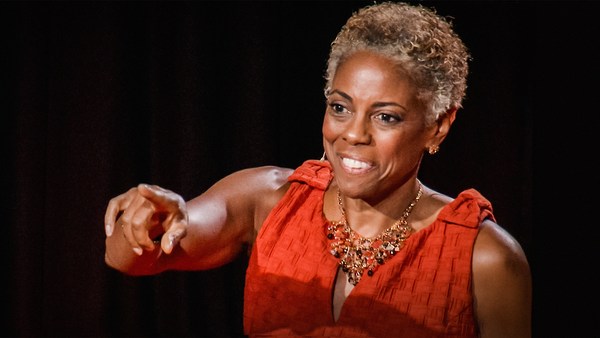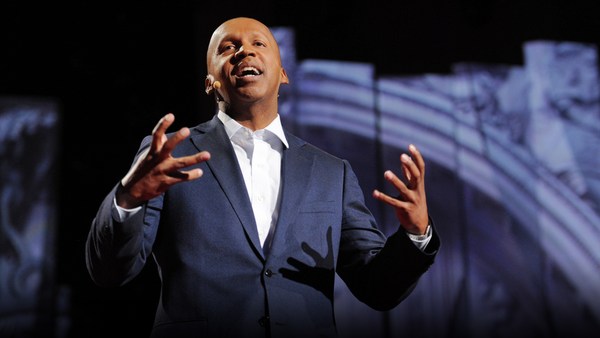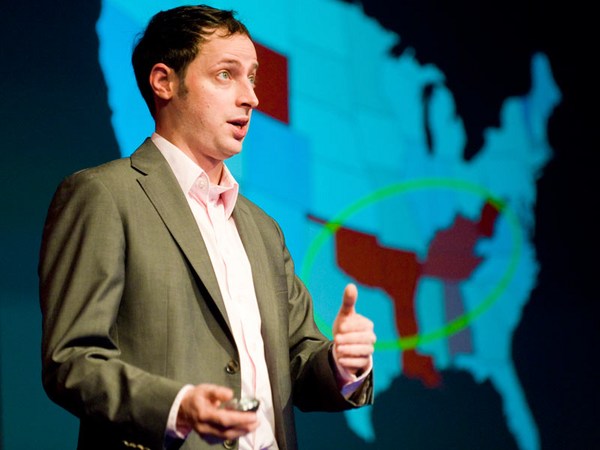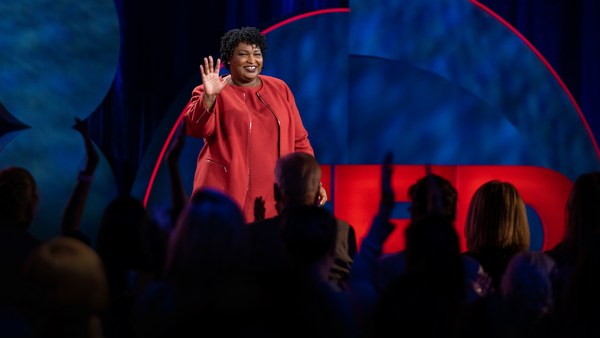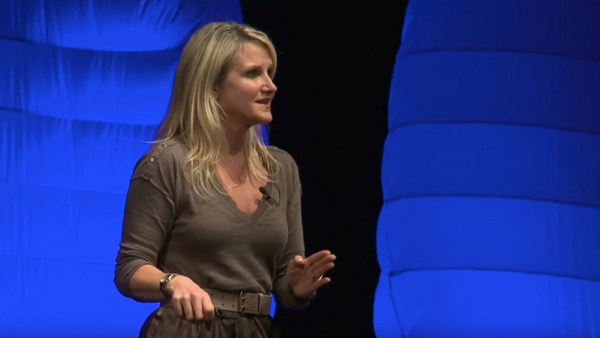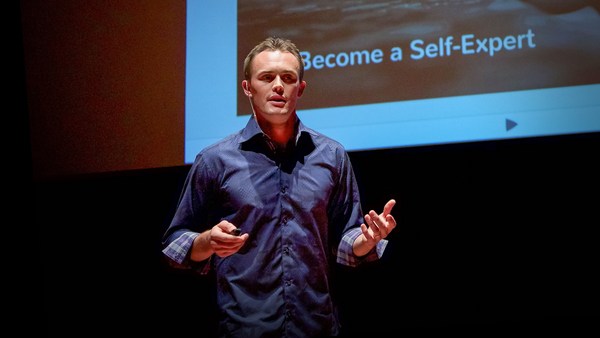An 18-year-old, African-American male joined the United States Air Force and was assigned to Mountain Home Air Force Base and was a part of the air police squadron. Upon first arriving there, the first goal that I had was for me to identify an apartment, so I could bring my wife and my new baby, Melanie, out to join me in Idaho.
I immediately went to the personnel office, and talking with the guys in personnel, they said, "Hey, no problem finding an apartment in Mountain Home, Idaho. The people down there love us because they know if they have an airman who is coming in to rent one of their apartments, they'll always get their money." And that was a really important thing. He said, "So here is a list of people that you can call, and then they will then allow you to select the apartment that you want." So I got the list; I made the call. The lady answered on the other end and I told her what I wanted. She said, "Oh, great you called. We have four or five apartments available right now." She said, "Do you want a one-bedroom or two-bedroom?" Then she said, "Let's not talk about that. Just come on down, select the apartment that you want. We'll sign the contract and you'll have keys in your hand to get your family out here right away."
So I was excited. I jumped in my car. I went downtown and knocked on the door. When I knocked on the door, the woman came to the door, and she looked at me, and she said, "Can I help you?" I said, "Yes, I'm the person who called about the apartments. I was just coming down to make my selection." She said, "You know what? I'm really sorry, but my husband rented those apartments and didn't tell me about them." I said, "You mean he rented all five of them in one hour?" She didn't give me a response, and what she said was this: She said, "Why don't you leave your number, and if we have some openings, I'll give you a call?" Needless to say, I did not get a call from her. Nor did I get any responses from the other people that they gave me on the list where I could get apartments.
So as a result of that, and feeling rejected, I went back to the base, and I talked to the squadron commander. His name was McDow, Major McDow. I said, "Major McDow, I need your help." I told him what happened, and here's what he said to me: He said, "James, I would love to help you. But you know the problem: We can't make people rent to folks that they don't want to rent to. And besides, we have a great relationship with people in the community and we really don't want to damage that." He said, "So maybe this is what you should do. Why don't you let your family stay home, because you do know that you get a 30-day leave. So once a year, you can go home to your family, spend 30 days and then come on back."
Needless to say, that didn't resonate for me. So after leaving him, I went back to personnel, and talking to the clerk, he said, "Jim, I think I have a solution for you. There's an airman who is leaving and he has a trailer. If you noticed, in Mountain Home, there are trailer parks and trailers all over the place. You can buy his trailer, and you'd probably get a really good deal because he wants to get out of town as soon as possible. And that would take care of your problem, and that would provide the solution for you." So I immediately jumped in my car, went downtown, saw the trailer -- it was a small trailer, but under the circumstances, I figured that was the best thing that I could do. So I bought the trailer. And then I asked him, "Can I just leave the trailer here, and that would take care of all my problems, I wouldn't have to find another trailer park?" He said, "Before I say yes to that, I need to check with management." So I get back to the base, he called me back and management said, "No, you can't leave the trailer here because we had promised that slot to some other people." And that was strange to me because there were several other slots that were open, but it just so happened that he had promised that slot to someone else.
So, what I did -- and he said, "You shouldn't worry, Jim, because there are a lot of trailer parks." So I put out another exhaustive list of going to trailer parks. I went to one after another, after another. And I got the same kind of rejection there that I received when I was looking for the apartment. And as a result, the kind of comments that they made to me, in addition to saying that they didn't have any slots open, one person said, "Jim, the reason why we can't rent to you, we already have a Negro family in the trailer park." He said, "And it's not me, because I like you people." (Laughs) And that's what I did, too. I chuckled, too. He said, "But here's the problem: If I let you in, the other tenants will move out and I can't afford to take that kind of a hit." He said, "I just can't rent to you."
Even though that was discouraging, it didn't stop me. I kept looking, and I looked at the far end of the town in Mountain Home, and there was a small trailer park. I mean, a really small trailer park. It didn't have any paved roads in it, it didn't have the concrete slabs, it didn't have fencing to portion off your trailer slot from other trailer slots. It didn't have a laundry facility. But the conclusion I reached at that moment was that I didn't have a lot of other options. So I called my wife, and I said, "We're going to make this one work." And we moved into it and we became homeowners in Mountain Home, Idaho. And of course, eventually things settled down.
Four years after that, I received papers to move from Mountain Home, Idaho to a place called Goose Bay, Labrador. We won't even talk about that. It was another great location. (Laughter) So my challenge then was to get my family from Mountain Home, Idaho to Sharon, Pennsylvania. That wasn't a problem because we had just purchased a brand-new automobile. My mother called and said she'll fly out. She'll be with us as we drive, she'll help us manage the children. So she came out, her and Alice put a lot of food together for the trip.
That morning, we left at about 5 a.m. Great trip, having a great time, good conversation. Somewhere around 6:30, 7 o'clock, we got a little bit tired, and we said, "Why don't we get a motel so that we can rest and then have an early start in the morning?" So we were looking at a number of the motels as we drove down the road, and we saw one, it was a great big, bright flashing light that said, "Vacancies, Vacancies, Vacanies." So we stopped in. They were in the parking lot, I went inside. When I walked inside, the lady was just finishing up one contract with some folks, some other people were coming in behind me. And so I walked to the counter, and she said, "How can I help you?" I said, "I would like to get a motel for the evening for my family." She said, "You know, I'm really sorry, I just rented the last one. We will not have any more until the morning." She said, "But if you go down the road about an hour, 45 minutes, there's another trailer park down there." I said, "Yeah, but you still have the 'Vacancies' light on, and it's flashing." She said, "Oh, I forgot." And she reached over and turned the light off. She looked at me and I looked at her. There were other people in the room. She kind of looked at them. No one said anything. So I just got the hint and I left, and went outside to the parking lot. And I told my mother and I told my wife and also Melanie, and I said, "It looks like we're going to have to drive a little bit further down the road to be able to sleep tonight." And we did drive down the road, but just before we took off and pulled out of the parking lot, guess what happened? The light came back on. And it said, "Vacancies, Vacancies, Vacancies." We were able to find a nice place. It wasn't our preference, but it was secure and it was clean. And so we had a great sleep that night.
The piece that's important about that is that we had similar kinds of experiences from Idaho all the way through to Pennsylvania, where we were rejected from hotels, motels and restaurants. But we made it to Pennsylvania. We got the family settled. Everyone was glad to see the kids. I jumped on a plane and shot off to Goose Bay, Labrador, which is another story, right? (Laughter)
Here it is, 53 years later, I now have nine grandchildren, two great-grandchildren. Five of the grandchildren are boys. I have master's, Ph.D., undergrad, one in medical school. I have a couple that are trending. They're almost there but not quite. (Laughter) I have one who has been in college now for eight years. (Laughter) He doesn't have a degree yet, but he wants to be a comedian. So we're just trying to get him to stay in school. Because you never know, just because you're funny at home, does not make you a comedian, right? (Laughter) But the thing about it, they're all good kids -- no drugs, no babies in high school, no crime.
So with that being the backdrop, I was sitting in my TV room watching TV, and they were talking about Ferguson and all the hullabaloo that was going on. And all of a sudden, one of the news commentators got on the air and she said, "In the last three months, eight unarmed African-American males have been killed by police, white homeowners, or white citizens." For some reason, at that moment it just all hit me. I said, "What is it? It is so insane. What is the hatred that's causing people to do these kinds of things?"
Just then, one of my grandsons called. He said, "Granddad, did you hear what they said on TV?" I said, "Yes, I did." He said, "I'm just so confused. We do everything we do, but it seems that driving while black, walking while black, talking while black, it's just dangerous. What can we do? We do everything that you told us to do. When stopped by the police, we place both hands on the steering wheel at the 12 o'clock position. If asked to get identification, we tell them, 'I am slowly reaching over into the glove compartment to get my I.D.' When pulled out of the car to be searched, when laid on the ground to be searched, when our trunks are opened to be searched, we don't push back, we don't challenge because we know, you've told us, 'Don't you challenge the police. After it's over, call us and we'll be the ones to challenge."
He said, "And this is the piece that really bugs me: Our white friends, our buddies, we kind of hang together. When they hear about these kinds of things happening to us, they say, 'Why do you take it? You need to push back. You need to challenge. You need to ask them for their identification.'" And here's what the boys have been taught to tell them: "We know that you can do that, but please do not do that while we're in the car because the consequences for you are significantly different than the consequences for us."
And so as a grandparent, what do I tell my grandsons? How do I keep them safe? How do I keep them alive? As a result of this, people have come to me and said, "Jim, are you angry?" And my response to that is this: "I don't have the luxury of being angry, and I also know the consequences of being enraged."
So therefore, the only thing that I can do is take my collective intellect and my energy and my ideas and my experiences and dedicate myself to challenge, at any point in time, anything that looks like it might be racist. So the first thing I have to do is to educate, the second thing I have to do is to unveil racism, and the last thing I need to do is do everything within my power to eradicate racism in my lifetime by any means necessary.
The second thing I do is this: I want to appeal to Americans. I want to appeal to their humanity, to their dignity, to their civic pride and ownership to be able to not react to these heinous crimes in an adverse manner. But instead, to elevate your level of societal knowledge, your level of societal awareness and societal consciousness to then collectively come together, all of us come together, to make sure that we speak out against and we challenge any kind of insanity, any kind of insanity that makes it okay to kill unarmed people, regardless of their ethnicity, regardless of their race, regardless of their diversity makeup.
We have to challenge that. It doesn't make any sense. The only way I think we can do that is through a collective. We need to have black and white and Asian and Hispanic just to step forward and say, "We are not going to accept that kind of behavior anymore."
